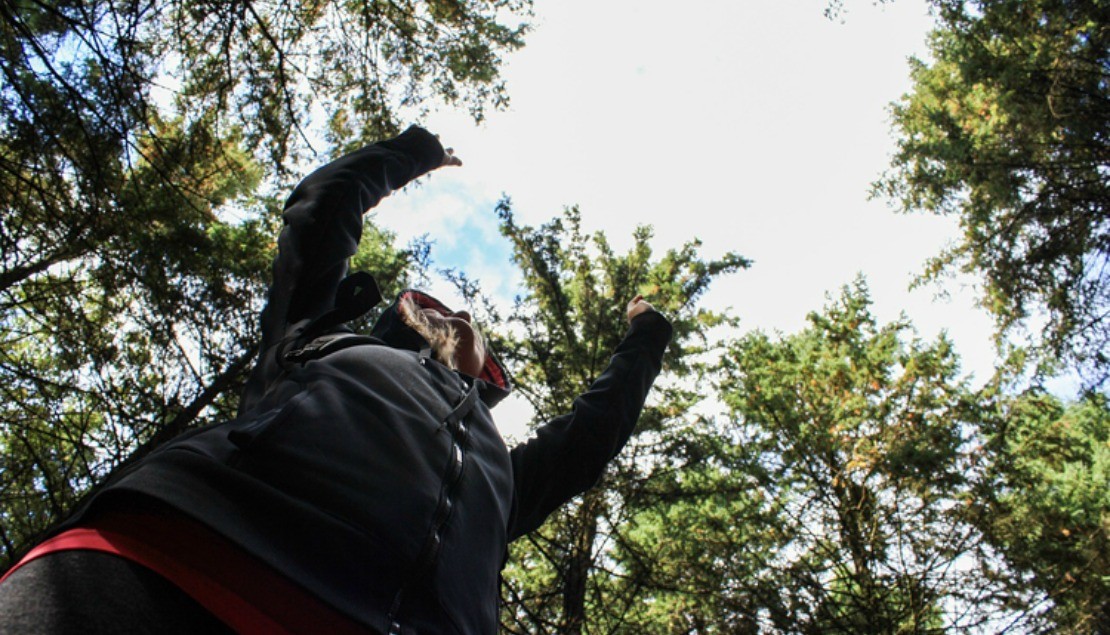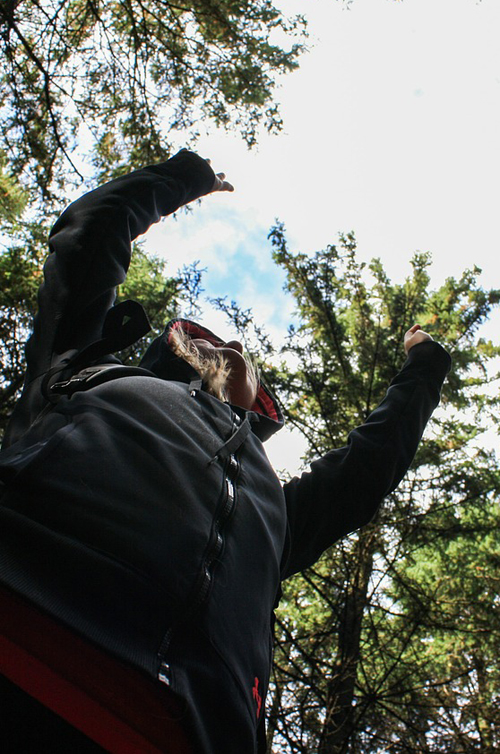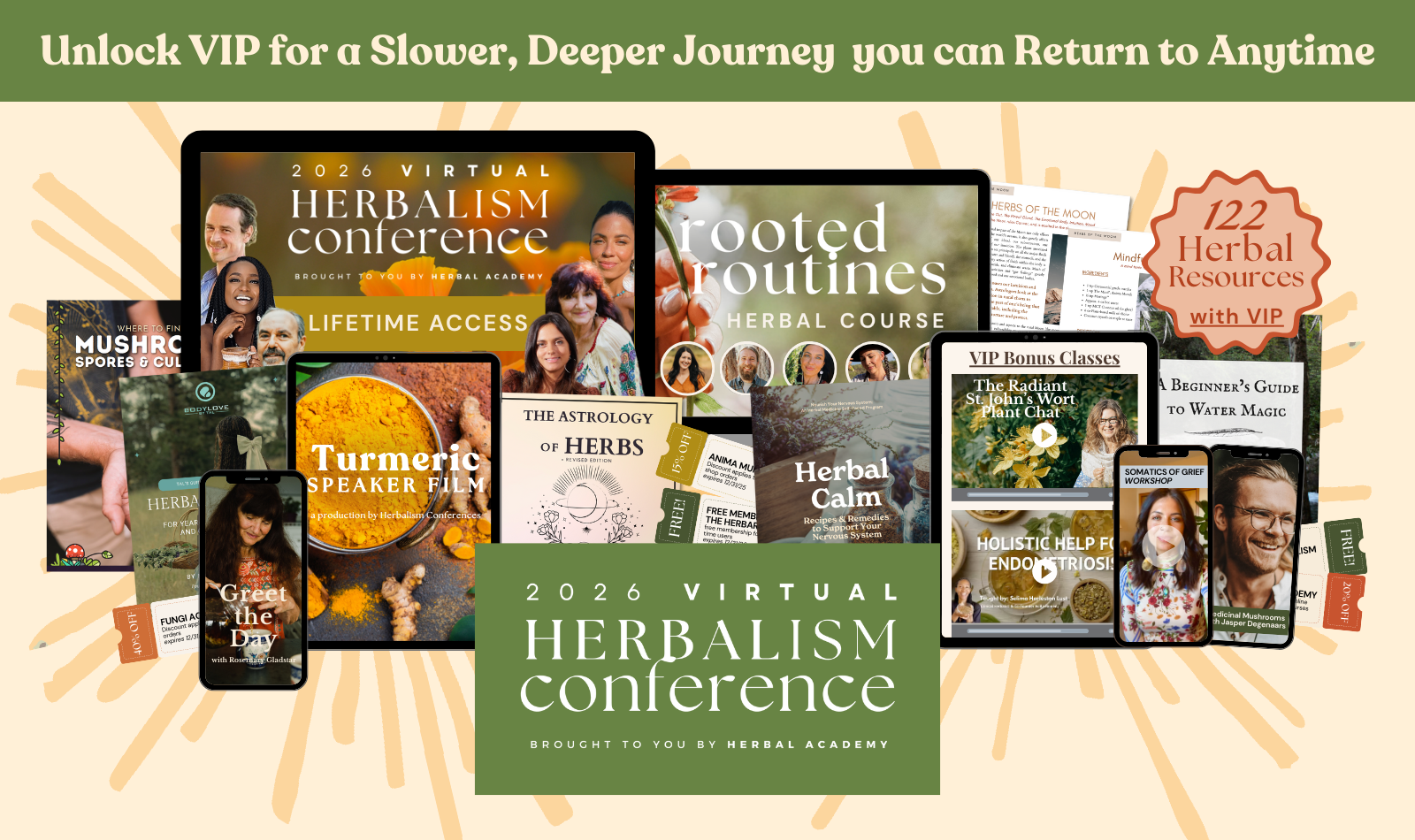
The Importance of Finding an Herb Mentor
Community is an important aspect of herbalism. Herbalism is all about relationships, after all – the relationships we have with each other and with health as well as the relationships we have with plants. One of the most special relationships within herbalism, though, is the relationship between herb mentor and student. Most herbalists eventually find some sort of mentor – it’s a very natural expression of how our herbal knowledge is passed along, and is the traditional way that herbalism was passed from one generation to another. Many of us at the Herbal Academy have had mentors that helped shape who we are as herbalists, and many of us continue to work with mentors even now!
The mentor-student relationship is so valuable and special because it helps us orient ourselves. Who do we want to become? In what direction are we moving? Our herb mentors are people we want to emulate, people who have been where we are now and have gone ahead where we wish to travel. Having a mentor also helps us by providing insight and perspective when the going gets tough. When we struggle with new questions or a new case study and we can’t seem to find answers or when it seems like we’ve lost our way on our path, our mentor can be there with encouragement, a new idea, or the wisdom from a parallel experience that helps us find the missing pieces of our puzzles.
But who, exactly, is a mentor?
The definition of the word is “an experienced and trusted advisor.” That’s a fairly broad definition! Each mentor-student relationship is unique, because those two parts of the equation are always going to be two different individuals. It’s up to the parties involved to create the relationship in a way that makes sense for them.
In some cases, the mentorship unfolds very informally, like a friendship. This is often especially true where an herbalist is fortunate enough to have a more experienced family member take them under their wing. But mentorships can also be very formal, even to the extent of the mentor being paid in exchange for their time and the mentoring experience being guided by a written contract that details specific goals and desired outcomes the student and mentor have for the relationship.

Things A Mentor Can Do
Regardless of the arrangement being formal or informal, a mentor is there to encourage the ongoing growth of the student and to provide guidance. They should be willing to help us troubleshoot, although it’s okay if they don’t just hand us the answers! Making us think and offering helpful suggestions when problems arise are the hallmarks of a truly great mentor. They are supportive of our efforts and there for us when we need encouragement. They can also help us be realistic and hold us to a standard, helping set the groundwork for skills and a knowledge base that will serve us well in the future. Most importantly, though, mentors can be a role model. We should be careful not to put them on a pedestal – after all our mentors are human, too – but at the same time they should be people we think are worthy of imitating in some way. Our mentors are setting examples for us as teachers, practitioners, and as professionals.
Things A Mentor Can’t (or Shouldn’t) Do
The mentor-student relationship can be wonderful and beneficial for both parties, but there are also some red flags that should be of concern. For instance, having a mentor is not a substitute for learning about herbs and herbalism on your own time – it should complement your own studies. Also, be wary of a mentor or potential mentor who seems set in stone, or insists that you do things only their way and will not dialogue about other opinions and ideas. The point of being mentored is to help you grow on your own path, not to be indoctrinated! So beware of black and white thinking. Another thing to consider is how your mentor gives you feedback on their observations. Honesty is important, but when your mentor guides you on mistakes you have made, or points out problems that need to be addressed, they should never make you feel small or embarrass you. The relationship should always be guided by professionalism. Anything that makes you feel uneasy or uncomfortable should be carefully considered and addressed. The mentor-student relationship should always be mutually respectful.

Finding An Herb Mentor
Finding a mentor can be tricky for many budding herbalists. Unfortunately, it’s not at all common anymore to have a family member that is able to pass along their herbal knowledge and skills. A good place to start is by looking for herbal classes and club meetings in your area where you can begin meeting like-minded people and ask about local teachers that may be open to mentoring students. Attending herbal festivals and conferences can be another way to meet potential mentors. Remember that a mentorship arrangement doesn’t have to be local, especially with communication tools like online video chat, emails, or phone conferences that can help you keep in touch with mentors that live far away. Before you approach a potential mentor, though, you should be able to very clearly explain what you are looking for and what you can offer in exchange.
Starting Out
Some things to consider before you approach a potential mentor include outlining your own goals, what skills you are interested in learning, and whether you can offer monetary payment or are looking for a volunteer exchange. If your goal is to become a clinical herbalist, a mentor that regularly sees clients or runs a community clinic would be beneficial; but if your dream as an herbalist is to grow herbs on a farm or to start your own business selling your handcrafted herbal products, then you should seek out an herb mentor that is actively doing those things. You should definitely have the specific skills you want to learn in mind, such as cultivating and harvesting herbs, making herbal extracts and blending teas, learning how to do client interviews, or becoming knowledgeable about the business side of running an herb business.
Some herb mentors may request payment for their time, while others will be open to enlisting your help on a volunteer basis – so be honest with yourself about your budget and/or time available for work-trade. It’s a good idea to put all of these things in writing so that once you find someone willing to consider being your mentor you can have clear communication from the start.
Saying Yes – Or No
Sometimes the people we wish to have as our mentors may not have the time or energy to take on students, so be prepared to approach several potential mentors during your search. Most herbalists understand what an important role being a mentor is and will not approach it lightly! Or their answer when we approach them may be “not at this time, but perhaps later.” Although this can be disappointing, as you continue learning and growing as an herbalist, you will find a mentor-student relationship that’s perfect for you if you keep at it, approach potential mentors with respect and clarity, and have your end goals in mind. Perhaps the idea of finding a mentor interests you, but you aren’t sure the timing is right on your end due to other family, work, or school commitments. That’s okay, too.
It’s important to remember that you may eventually have several mentors over the years. Our journeys unfold slowly over time, and we may meet our mentors when we least expect them. Remember to take pleasure in all of the unique relationships that herbalism brings into your life. Whether or not we have a formal mentor, we can cherish and delight in close friendships we develop along the way and learn from many different sources.

While You Are Searching
If you are looking for a new adventure on your herbal learning journey, we would love to invite you to explore our online herbal learning courses. As you study each lesson in the Introductory or Intermediate Herbal Course, you will have access to a whole team of teachers to support your efforts and a community of fellow learners via the course forums.
If you aren’t looking for a full course, you may be interested in our online members-only resource, The Herbarium. The Herbarium gathers the best of the best herbal resources to help you continually grow and explore herbalism. From ebooks, videos, and thoroughly researched articles to an ever-expanding herbal database that puts information about each plant conveniently at your fingertips, The Herbarium has it all in one place! All of our courses and The Herbarium membership are of the highest quality and are priced affordably. Learn more here! We hope to see you in class!
RESOURCES:
Howell, Patricia Kryritsi. (2012) The American Herbalist Guild Handbook of Mentoring Guidelines for Student Practitioners and Mentors. American Herbalist Guild.
Phillips, Nancy and Michael. (2005) The Herbalist’s Way: The Art and Practice of Healing with Plant Medicine. White River Junction: Chelsea Green Publishing Company









